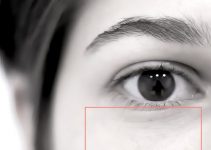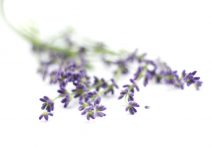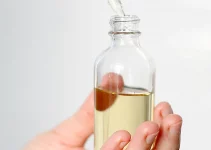Are there any benefits of mango butter for skin that will cement your interest in this ingredient or will it turn out to be something that it’s not good for your skin type?
Let’s find out everything we should know about mango butter and its main benefits for skin.
As more of us tend to prefer a more natural skin care approach, we must understand which ingredients would serve us best. Mango butter has many uses, we should definitely know more about it.
And, since we’re speaking of a more natural approach for our skin, check out this post about benefits of lavender water for our skin, hair, and more.
Contents
Mangoes are Awesome
We all know what mango is and some might even love eating it but mango butter is actually obtained from the seed of the fruit.
Mangoes are known for their content in vitamin C, vitamin A, vitamin K, potassium, folate (B-vitamin), magnesium.
It also contains mangiferin, which has antioxidant, antimicrobial and anti-inflammatory properties, to name a few.
Mangiferin is a polyphenol. Whenever you see the word polyphenols, all you need to remember is that they are packed with antioxidants and are described as having anti-microbial, anti-inflammatory and anti-aging benefits.
All in all, this fruit contains more than 20 vital vitamins and minerals, fiber and pectin. And the presence of such powerful antioxidants doesn’t go unnoticed.
We’ll try to establish what that means in terms of benefits of mango butter for skin. We’ll see if all those antioxidants translate into something beneficial for the skin when applied topically.
At least we know that even if there’s a chance that we might not be impressed with the benefits of mango butter for skin, we are all acknowledging how healthy mangoes are and that it would be a good idea to eat them more often.
What Is Mango Butter?

Seeds of fruits have been praised for their benefits for a very long time. It’s why mango seeds are processed to be transformed into mango butter.
The best procedure is to cold-press the mango seeds – it’s similar to cocoa butter and shea butter, if you want to make an idea of what mango butter is.
When the seeds undergo high pressure and friction, oils are released and that’s the butter, which retains the nutritive value. Otherwise, we wouldn’t be talking about potential benefits that mango butter has for the skin.
Benefits of Mango Butter for Skin
There are quite a few benefits to talk about when it comes to mango butter in skin care, one of the most important being its moisturizing and protective benefits.
Skin repair is where it shines the most, in my opinion.
You can apply it on dry skin, peeling skin and cracks, sun burns, to relieve itching, to relieve insect bites.
But there are others, like anti-aging benefits and also anti-microbial and anti-inflammatory properties.
1. Moisturizing & Soothing Benefits
Since the word butter is involved and I mentioned the other two similar butters for skin, I’m pretty sure that you have already figured out which is the main benefit of mango butter for skin.
The obvious benefit we think about is mango butter’s moisturizing properties.
Mango butter has moisturizing benefits because it contains fatty acids (palmitic acid, stearic acid, omega 6 and 9).
Fatty acids are lipids. And lipids are skin’s natural fats. They are responsible for maintaining a strong skin barrier. A strong skin barrier protects us against environmental factors and it holds the moisture in the skin, preventing our skin from getting dry.
And that’s how mango butter can contribute to us having a moisturized skin.
Furthermore,
Mango butter is a powerful occlusive. What does that mean, since I’m pretty sure that it’s the first time some of you have heard of occlusives?
It means that mango butter prevents the skin from getting dry, it prevents it from losing moisture by locking it in the skin, as I’ve explained above with how fatty acids are beneficial for the skin.
So, occlusives are very good at preventing the skin from getting dry even in cold weather. However, they’re not so good if you want to avoid getting clogged pores.
Occlusives can clog pores and are not a good option for those with oily, combination or acne-prone skin. Humectants, like hyaluronic acid, are a much better idea for those skin types.
It can be used to protect the body, as a body cream or foot cream or hand cream. It will work well for dry sensitive skin.
2. Natural Alternative to Mineral and Petroleum Emollients
Due to its benefits of reducing the roughness of the skin, of treating and protecting the skin from losing its moisture, mango butter is the natural alternative to other emollients, like petroleum and mineral oil.
Mineral oil has garnered a somewhat negative reputation, but as I talked in my post on the best face wipes, mineral oil is not a bad ingredient at all, it’s actually one of the most powerful moisturizers. It’s just that people have become scared of it for some reason. Mango butter can work as a replacement, if that’s the case.
If you’re all about a natural skin care routine, you need to give mango butter a chance as a moisturizer, a natural one.
3. Anti-Aging Benefits
I mentioned above that mango is rich in antioxidants, vitamin C and vitamin A the most recognizable of them all but mangiferin is another interesting component.
Well, antioxidants are known for their anti-aging benefits and, among the benefits of mango butter for skin, we can count having a smooth skin.
Antioxidants are known for stimulating collagen production and we can assume that the polyphenols and phytosterols present in mango butter will do just that.
Can we compare mango butter in its anti-aging benefits with what retinol or even rose hip oil offers? I don’t think we can. But it’s still a good ingredient that can help keep fine lines at bay.
4. Protection Against Environmental Factors and UV Rays
Mango butter first offers protection against environmental stressors by strengthening the skin barrier with its high content of fatty acids.
It also contains phytosterols, which are considered to block the effects that UV rays have on reducing the collagen synthesis. It’s why we age if we expose ourselves to the sun without wearing sunscreen.
Well, that was established for phytosterols and ceramides working as a team. Together, they are also considered to even stimulate collagen synthesis.
It seems that the anti-aging and environmental protection benefits of mango butter for skin go hand in hand.
Mango Butter Uses
You can actually buy mango butter and do with it quite a lot of things. As we’ve demonstrated above when talking about benefits of mango butter for skin, it’s an interesting complex ingredient to have around.
It has a solid consistency at room temperature and it melts in contact with the skin.
Unrefined mango butter is the best choice to buy because it preservers its high content of vitamins and minerals.
What can you do with mango butter?
It can serve as a base for a number of skin care recipes: body creams for dry skin, foot and hand creams, moisturizer for the face with some anti-aging benefits, lip balms, and even for soap making if you want to expand your horizons.
It can also be used in hair treatments and hair masks because it prevents hair breakage and hair dryness, it keeps it healthy due to its actions as an emollient.
There are also sorts of recipes online for mango butter and what you can do with it.
And you can even use it for cooking.
I think you might be as impressed with the benefits of mango butter for skin as I am but, most of all, what we should all remember is that we should eat mangoes for our overall health and not only that of our skin.



